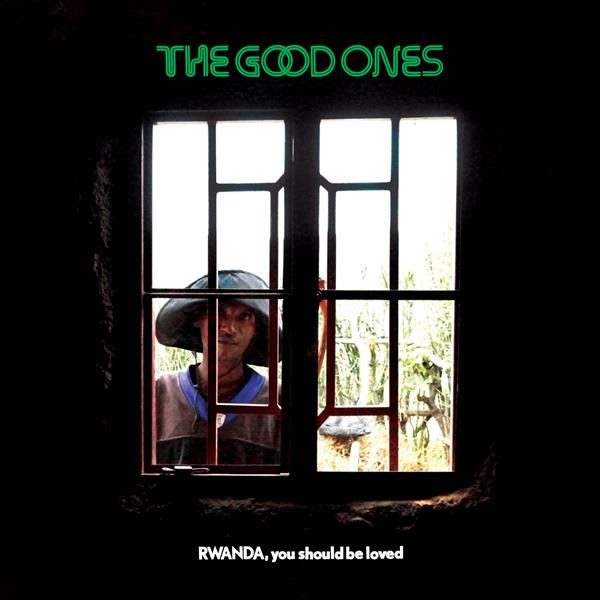The Good Ones Share Their Rwanda With The World

In this hellacious year of our lord, it seems like we mortals are living and reliving humanity’s worst moments on earth with nauseating frequency. Among the already tired political, social, and environmental tropes rotating through an endless news cycle, 2019 also marks 25 years since the Rwandan genocide — a humanitarian horror that shouldn’t warrant such an arbitrary, quarter-century time peg, yet one that absolutely needs to be remembered, honored, mourned, and taught.
The genocide itself lasted just 100 days between April 7 and July 15, 1994, yet, more than more than 12.5% of Rwanda’s population was killed in the ethnic cleansing. That meant that, according to the BBC, an estimated 800,000 Tutsi died at the hands of extremist Hutus, which preceded the end of the Rwandan Civil War. This tragedy, which was only officially internationally recognized as a genocide against the Tutsi in 2014, decimated the population and the workforce of the tiny Central African nation; it’s still struggling to recover.
So when hearing about the first Rwandan band to distribute music sung in their native language, Kinyarwanda, internationally, it’s easy to receive the commodity with a bit of cynicism, or at least apprehension. After all, 10 years ago, Grammy award-winning producer Ian Brennan traveled to Rwanda with his wife, Italian-Rwandan filmmaker and photographer Marilena Delli, with the specific purpose of seeking local music. Two weeks into the trip, they discovered The Good Ones — a trio comprised of Adrien Kazigira, Javan Mahoro, and Janvier Havugimana that began in 1978, when they were children. The band name came from both wanting to find the best musicians around and a larger effort to reunite Rwanda’s three tribes (Tutsi, Hutu, and Abatwa) and try to process their country’s communal trauma.
Since 2010, The Good Ones have released three albums (Brennan and Delli having worked on all of them), and the newest, Rwanda, You Should Be Loved, is their first for Anti- Records. But this record is not the aural equivalent of an evangelist mission trip or tear-jerking commercial for saving starving children in third-world countries. It’s a stirring collection of authentic, original folk songs that is somehow emotive, educational, and entertaining.
The rawness of Rwanda, You Should Be Loved is apparent from the first song. In fact, the record was recorded live on Kazigira’s farm (although a long list of Western rockers are listed as collaborators, including Wilco’s Nels Cline, TV on the Radio’s Tunde Adebimpe, Sleater-Kinney’s Corin Tucker, My Bloody Valentine’s Kevin Shields, and Fugazi’s Joe Lally). That hilltop locale holds both special and tragic history: The singer and his children were all born on the farm, his wife died on the land, and the surrounding forest sheltered Kazigira for months during the genocide’s raging violence. Brennan treats this fraught location — one still without electricity or running water, where hunger can still be an immediate concern — with deep respect, producing a clean record, free of extraneous noise. In particular, the band members sound impressively close, both to each other and to the listener.
Local instruments and percussion also add vivid detail to the primarily acoustic guitar-based songs. In “Where Did You Go Wrong, My Love,” rhythm keeping is as dry as a hammer to a nail — a simile that could be reality, since the band often repurposes their farming equipment as percussion. And in the 90-second love song, “Seraphinne, You are the Prettiest Woman in the World,” the band sings in unison to snare-like hand claps and the deeper timbre of another indescribable piece of percussion. (During their first tour stateside, a duo version The Good Ones replicated that sound by thwacking the soles of work boots against each other.)
The longest track on the record, “Despite It All I Still Love You, Dear Friend,” is a meditative ballad that encapsulates all of The Good Ones’ musical faculty and lyrical poignancy in 5 1/2 minutes. The song opens with Kazigira’s fingerpicking and Havugimana’s quick tambourine tapping. Soon, whistling begins to mingle with a weeping slide guitar, as The Good Ones tell a tale of forgiveness in three-part harmony.
Even if you hate me,
I will keep loving you.
When someone is really suffering,
only then do you realize
that no one deserves
such pain.
Throughout all of its 12 tracks, Rwanda, You Should Be Loved is an exceptional document that highlights the enormity of the human heart among all involved — the label for challenging the role of a legacy genre label, the recording team for maintaining the authenticity of the songs and spaces, and, of course, The Good Ones themselves, for surviving and sharing their tunes and truths with the world.


